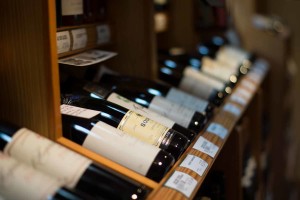Wine: off-trade winner in Lockdown

Wine volumes showed an increase of 10% in the second Quarter of this year compared to the same Quarter in 2019according to the Department’s data calculations.
The Department’s Finance’s Tax Strategy Group Papers, published ahead of this year’s Budget, show that people actually consumed more alcohol in the seven months to the end of July than in the same period in 2019 despite the pubs being shut.
While beer, spirit and cider volumes were down 17.4%, 9.8% and 9.4% respectively in the second Quarter of this year compared to the same Quarter in 2019, wine volumes showed an increase of 10% according to the Department’s data calculations.
“Despite the closure and ongoing restriction of the on-trade, we are not seeing a decrease on a similar magnitude in overall alcohol sales volumes,” state the Departmental Papers.
“This indicates that in Q2 2020 alcohol sales in supermarkets have increased significantly due to a substitute purchasing effect.”
Excise tax on alcohol accounted for €1.232 billion in 2019, down from 2018’s €1.239 billion figure.
But the Papers point out, “Total excise receipts on alcohol to the end of July 2020 (at €669.1m) is marginally higher than for the same period in 2019 (€666.8m), reflecting a strong substitution effect when the on-trade was closed”.
The report also notes that consumer tastes changed too.
“The increased consumption of wine has had implications for the pub trade, as over 80% of wine is purchased in the off-trade,” notes the report, “Given that excise duty on alcohol is largely unchanged as a proportion of price over the years, it is unlikely that tax is the driving factor in consumption changes. In this regard, the consumption and composition of consumption of alcohol products is driven by factors such as personal disposable income, individual consumer preferences, the availability of alcohol products, the pricing strategies of retailers and publicans and cultural changes”.
The Strategy document illustrates the trend in excise duties as a percentage of the national average price of the representative pint of stout, lager, cider and glass of whiskey sold in the on-trade.
“Since 2014” it notes, “excise duty as a percentage of the retail price has fallen across all these products, due to pub price inflation.”
The Department of Finance Papers compare this with the trend in excise duties as a percentage of the national average price of the representative can of lager or cider or bottle of wine or bottle of whiskey sold in the off-trade.
“Broadly speaking, the trend has been relatively flat since 2014”, states the report, indicating that average retail alcohol prices in the off-trade have not changed much since 2014.








